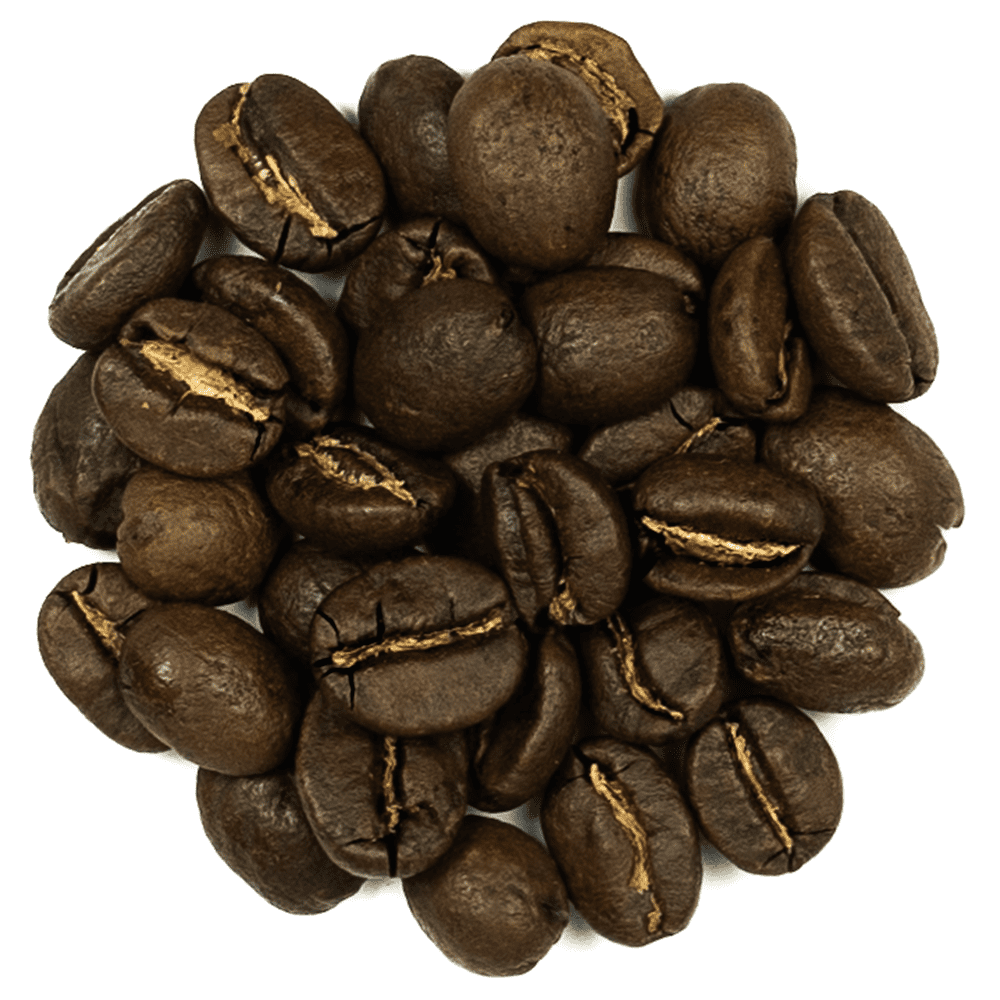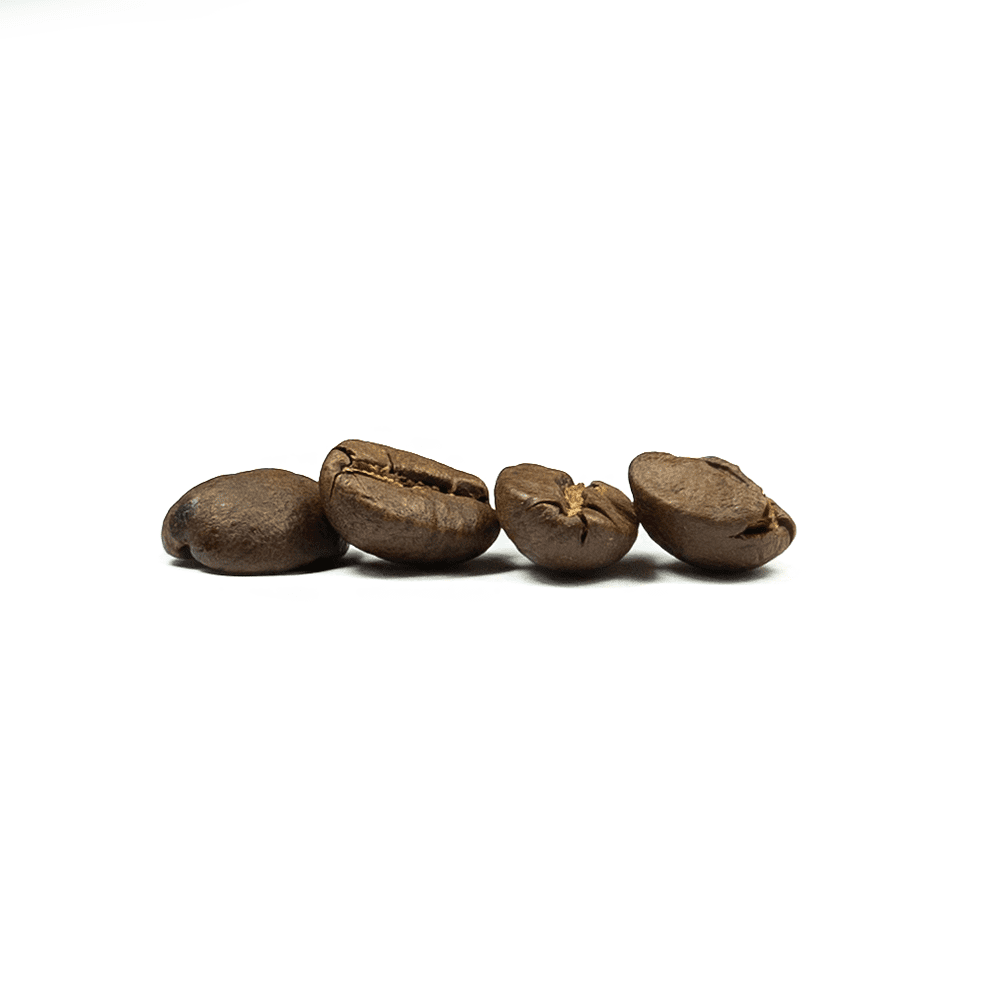Coffee Brewing Guide
Cafetiere / French Press
Use one tablespoon of cafetiere ground coffee per mug, or per 125ml of hot water. Allow to brew for 2-3 minutes.
Coffee Filter / Drip
Add a tablespoon of medium ground coffee per mug, pour hot water over the filter and allow it to drip through.
Espresso Machine
Add espresso fine ground coffee and press the coffee into the portafilter. Attach it to your machine and start extracting.
About Product
-
Product Description
Introducing our premium Rwandan Coffee for those who love the good life. Grown in the hills of Rwanda also known as the land of a thousand hills this really is the real deal.
Beans are medium roasted for balance and full bodied. Not as famous as her twin Kenyan coffee I dare say she has her own flavours and characteristics.
Freshness and quality of coffee beans are our top priority. That’s why we pack every single order to ensure consistency and high quality. Now let’s get into the different tastes and take your coffee moments to the next level.
Brewing Instructions for Rwandan Coffee
To get the best out of Rwandan coffee, try one of the following brew methods to explore the various flavor profiles:
- Cafetiere (French Press): Add one heaping tablespoon of coarse ground coffee to 6 ounces of water. Pour freshly boiled water over the grounds, stir gently, and let steep for 4 minutes before pressing.
- Espresso Machine: Use fine ground and aim for a double shot using 18-20 grams of coffee for a full-bodied experience. Adjust the grind size and extraction time between 25-30 seconds to your taste.
- Drip Machine: Use medium ground. One to two tablespoons per 6 ounces of water for a balance of strength and flavours. Start with the recommended ratio and adjust to your desired strength.
Water Temperature and Quality
Water temperature and quality are key to brewing great coffee. Here are some tips to get the best out of your coffee:
- Use Fresh Water: Always use fresh filtered water to brew your coffee. Tap water can contain impurities that affect the flavour, so it’s best to avoid it.
- Check the Water Temperature: The ideal water temperature for brewing is between 195°F and 205°F. Water that is too hot can over extract the coffee resulting in a bitter taste, water that is too cold can under extract resulting in a weak and sour cup. Using the right temperature helps achieve a balanced and flavorful brew.
- Use the Right Amount of Water: The water to coffee ratio is crucial for a perfect brew. Too little water can result to over extraction and the coffee will taste too strong and bitter. Too much water can result to under extraction and the coffee will taste weak and insipid. Follow the recommended ratio for your brewing method to get optimal extraction and flavour .
Use the right water and temperature and you can take your coffee brewing to the next level and get a cup that truly reflects the quality.
Follow these and you can level up your experience and get to enjoy the unique flavours and aromas of high quality coffee. Whether you’re a connoisseur or new to speciality coffee these tips will help you get the most out of your brew.
Tasting Notes
With a multitude of flavour profiles with notes of raspberry and hints of dried fruit and black plum. As it cools, a black tea finish enriches the tasting experience and leaves a lingering and sophisticated palate that lingers with each sip.
Rwandan Coffee History
The story of coffee in Rwanda is as deep as the cup. From Ethiopia where coffee was born, it spread across the African continent and beyond. Belgian colonialists brought coffee to Rwanda in the early 20th century as part of their overall plan for the region. By the 30’s it was a cash crop in Rwanda but more quantity than quality in those early days.
After independence in 1962 Rwanda continued to export coffee but it wasn’t until the 90’s after the genocide that the country started to rebuild the industry.
Rebuilding the nation saw coffee as part of the recovery and initiatives to improve quality got international attention. Investments in infrastructure and training for local farmers triggered this transformation, and it started to gain recognition globally. Many farmers formed cooperatives to improve their lives and get better prices for their coffee beans.
Today Rwanda is famous for its high quality Arabica Coffee with full bodied flavour profiles and citrusy notes. The production is now focused on sustainability and ethics with many cooperatives supporting thousands of small holder farmers.
This has not only increased Rwanda’s share of the global market but has also contributed to the country’s economic growth. The story is a story of hope and Rwanda’s commitment to quality and sustainability.
Coffee Production and Processing
Rwanda’s coffee is grown at high altitudes between 4,000 to 6,000 feet above sea level which is one of the advantages. Asgabo, Kibogora and Kamembe are located in Kivu; the other growing regions are Virunga, Kizi Rift, Akagera and Muhazi. Most of the coffee in Rwanda is Arabica which is ninety seven percent of the coffee trees in Rwanda and has general characteristics of having flavours that smell like chocolate, cinnamon and other fruity scents.
Also there are some Catuai and Caturra varietals planted. Each of these washed, natural and honey add uniqueness to the flavours which are unmatched.
Coffee is a Part of Rwandan Identity for Many Farmers
For most Rwandan farmers coffee is part of their daily life as it’s their cash crop. The coffee sector in this country has many small holders, each with a quarter of a hectare of land out of 450,000 coffee farmers.
The local culture is also considered when talking about coffee in Rwanda. With many variables at play the coffee from Rwanda has a beautiful rounded profile, chocolate or cinnamon and strong fruit flavours. Rwanda is on its way to becoming a top exporting country, it has already won the hearts of coffee lovers worldwide because of its unique taste.
There is more to Rwanda than just coffee it’s home to beautiful high hills and green land. This country is also known as the Land of a Thousand Hills because of its unique land features for growing.
Rwanda has so much potential in coffee growing and specific taste profiles which we believe is worth sharing to the world. We believe as a company that it is a bridge between people and is good for society.
One of the reasons why we source Rwandan beans, along with many others from around the world is to support quality coffee production, fairness to the industry and sustainability.
Rwandan in the International Market
For most Rwandan farmers it is part of their daily life as it’s their cash crop. The sector in this country has many small holders, each with a quarter of a hectare of land out of 450,000 coffee farmers. But many farmers have managed to get deals with local roasters which has improved their lives and widened the price range for many wholesalers offer.
The local culture is also considered when talking about coffee in Rwanda. With many variables at play the coffee from Rwanda has a beautiful rounded profile, dark chocolate or cinnamon and strong fruit flavours. Rwanda is on its way to becoming a coffee exporting country, it has already won the hearts of coffee lovers worldwide because of its unique coffee.
In Summery
We bring unique and high quality coffee from different parts of the world to our customers. We believe in supporting local farmers, sustainability and a memorable experience through our selected beans. We roast all our coffee in-house to maintain quality and support coffee growing communities.
-
Delivery Information
We offer reliable delivery services through Royal Mail to ensure that your orders reach you on time.
Here are the main points you should be aware of:
- Standard UK Delivery: £3.95 excluding delivery charge.
- Delivery Times: Orders are processed and dispatched within 2-5 working days but they may take longer during busy times. It is worth noting that all our orders are packed by hand in order to maintain the quality.
- Free Delivery: We are delighted to provide free shipping for UK orders over £35*. Moreover, customers from Europe can enjoy free shipping for any purchase above €75*. Furthermore, we offer free delivery in the USA for all purchases exceeding $125*. Please note terms and conditions may apply.
- Tracking: When your package is sent you will receive a tracking number via email so as to keep tabs of its progress.
International Shipping
We do ship worldwide meaning our products can be accessed by anyone around the world.
Here are some important details:
- Delivery Times: International deliveries vary based on destination, generally taking between 7-14 working days.
- Shipping Costs: International shipping costs are calculated at checkout based on your location and weight of your order. View full delivery charges for your location.
- Customs and Import Duties: Remember customs or import duties may exist depending on regulations in your country; these charges are borne by the customer.
Returns Policy
Your satisfaction is our top priority, however if for any reasons you’re not completely happy with your purchase, simply follow our returns procedure:
- Eligibility: Items returned within 30 days of receipt must remain unopened and in their original condition.
- Process: In order to return an item contact our customer service department using your unique order number after which detailed instructions will be given concerning returning them back to us securely.
- Refunds: Our aim is to refund you within 5-7 working days upon successful reception of returned goods. The refund amount will be credited to your original payment method.
For any other Enquiries or help please contact our Customer Support Team always at your service.
-
Product Reviews

